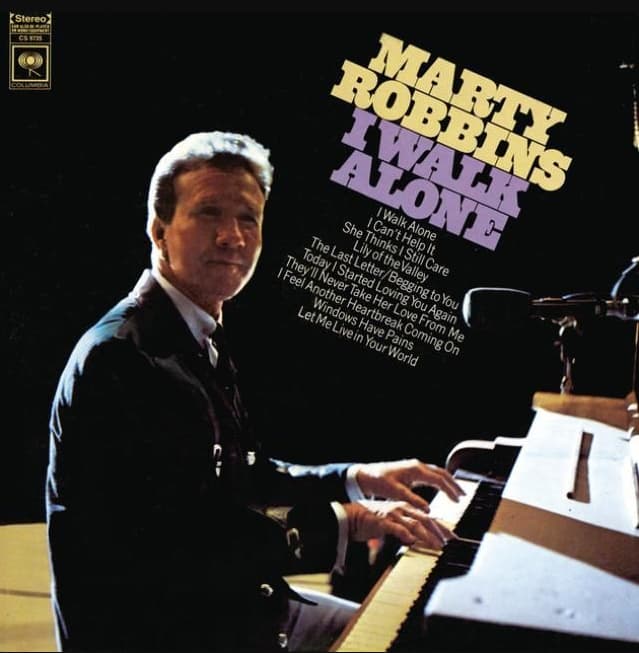
An Introspective Journey into a Lost Love’s Heartbreak
The year 1968 was a turbulent time, a year of social change and upheaval, yet in the midst of it all, a quiet and profound ballad emerged from the soul of a true country music legend. Marty Robbins, with his smooth-as-silk voice and masterful storytelling, released the album “I Walk Alone”. While the title track, a number-one hit, often takes the spotlight, it’s the B-side, the hauntingly beautiful “Lily of the Valley,” that truly speaks to the reflective heart. This song, though not a chart-topper in its own right, quietly became a cherished gem for those who understood its sorrowful grace. It’s a song for the long nights, for the moments when you find yourself looking back on a past love and the bittersweet ache that lingers.
“Lily of the Valley” is a poignant and deeply personal narrative of love and loss. The song’s meaning is tied to the heartbreak of watching a love fade, not with a bang or a dramatic fight, but with the quiet, devastating certainty of a slow-moving river drying up. The narrator, in his pensive reflection, sees the person he loves slipping away, their once vibrant connection wilting like the delicate flower in the title. The “lily of the valley” itself serves as a powerful metaphor for this fragile love—beautiful and pure, but easily crushed and destined to fade with the changing of seasons.
The song’s power lies in its quiet intimacy. Unlike the sprawling, cinematic narratives of Robbins’s famous “gunfighter ballads,” this is a story told with a sigh and a tear, a confession whispered into the night. It’s not about grand gestures or heroic deeds; it’s about the small, painful moments of realization. The subtle changes in a look, the distance in a touch, the coldness that creeps into a room that was once warm with affection. This is what makes “Lily of the Valley” so universally relatable. It captures the essence of a very specific kind of sadness that many of us, as we grow older, have come to know all too well. It’s the kind of song you put on when you’re alone with your memories, a gentle soundtrack to a life lived and loves lost. It’s a testament to Marty Robbins’s artistry that he could evoke such profound emotion with a song so simple in its construction yet so vast in its feeling. He didn’t just sing songs; he lived them, and in doing so, he gave us a way to understand our own unspoken heartbreaks.